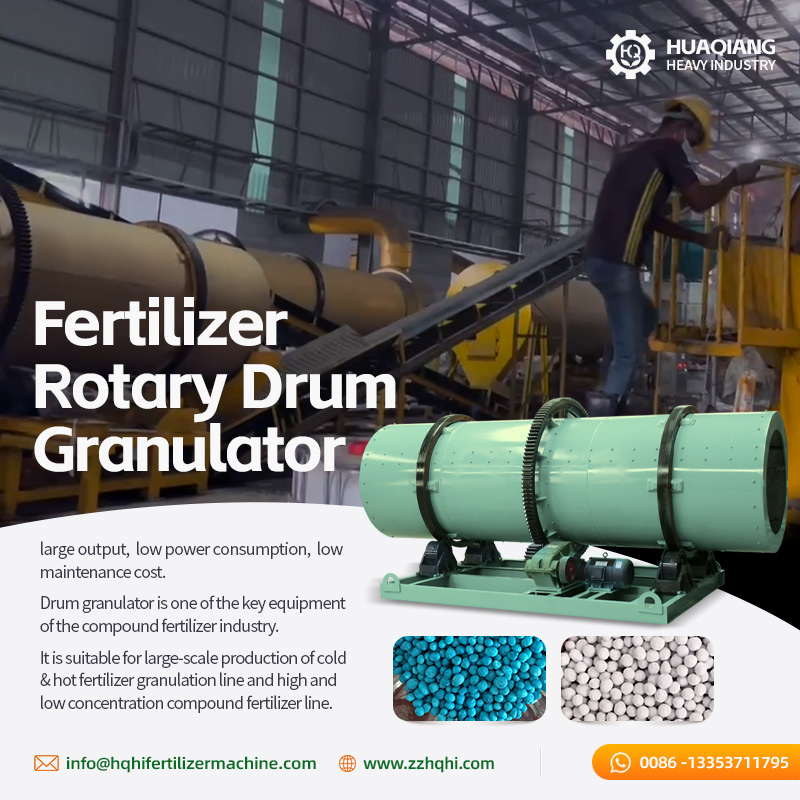On the fertilizer production line, the rotary drum granulator works like an indefatigable iron warrior. But even the sturdiest equipment needs careful maintenance to stay in top condition. Master these maintenance tips to keep your equipment as good as new and boost production efficiency.

Daily Checks: Prevention is Better Than Cure
Before starting each day, spend 10 minutes on a “full physical exam”: gently shake connection points to check tightness, listen for abnormal “groans” from the transmission, and observe whether the drum rotates as smoothly as a ballet dancer. Don’t forget to check the spray system’s “blood vessels”, ensuring each nozzle can “spit water” freely.
Pro Tip: Create a visual checklist for daily inspections to avoid omissions.
Periodic Maintenance: Deep Care Program
Give your equipment a weekly “SPA”: carefully check whether the drum’s wear-resistant lining shows “wrinkles” (wear), and whether support rollers are “malnourished” (insufficient lubrication). Monthly, take the motor and reducer’s “temperature” (preferably below 70°C) and listen to their “heartbeat” (vibration frequency). Quarterly, conduct a comprehensive “physical exam” covering everything from transmission systems to electrical controls.
The Art of Cleaning: Equipment Loves “Baths” Too
After production, don’t let material residues “stay overnight” in the drum. A pressure washer is your best helper, easily removing most “stubborn elements”. For particularly “clingy” residues, special scrapers serve as your “scalpel”. Regular cleaning of surface grease and dust maintains “skin” cleanliness for early problem detection.
Lubrication: The Equipment’s “Lifeline”
Lubrication is like the equipment’s “circulatory system” – reducers need a “blood change” (gear oil replacement) every 1000 operating hours, while bearings require “blood transfusions” (grease replenishment) every 500 hours. Remember: different parts need different “blood types”, and too much or too little affects “health”.
Common Mistake: Mixing lubricants or using expired oils accelerates component wear.
Core Component: Special Care for the Drum
The drum is the equipment’s “heart” – pay special attention to its “figure” (deformation) and “immune system” (sealing performance). Slight “arrhythmia” (unsteady rotation) may signal serious issues requiring professional “doctor” diagnosis.
Nervous System: Electrical Maintenance
Regularly “take the pulse” of electrical systems: check for “tense nerves” (aged/loose connections) and control cabinet component responsiveness. Dust is circuit boards’ “nemesis” – regular cleaning prevents mysterious “neuroses” (electrical faults).